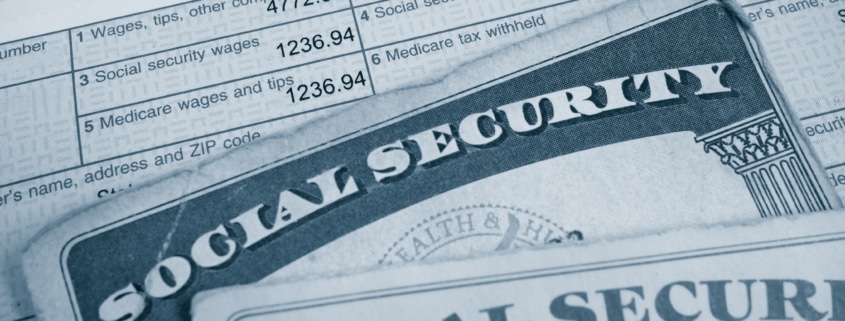Filing business taxes early is rarely a bad idea. If you’re expecting a tax refund, filing early means you’ll receive the refund sooner.
But that’s not the only benefit, and there are plenty of advantages to filing taxes early. Keep reading to learn some of the reasons to get ahead of the game and file before the deadline next year.
6 Reasons to File Business Taxes Early
The life of a business owner is usually very busy, and it probably seems difficult to find time to focus on organizing your business financial information and filing your business tax documents. However, making time to do that sooner than later offers plenty of benefits.
Avoid Paying Penalties
First, if you file early, you don’t have to worry about paying penalties for not meeting tax deadlines. For example, imagine you plan to complete and file your returns during the first week of April, to meet an April 15 deadline. If on April 1, you face an unexpected circumstance—your business is flooded due to a storm, your top employee quits or takes a leave of absence, or you receive a huge rush order for your product—and suddenly, you are preoccupied with other things. Your good intentions for tax filing may get cast aside, causing you to delay filing and potentially rack up penalties.
Not only does the IRS charge Failure to File penalties and Failure to Pay penalties, but it also charges interest on penalties. Those charges accrue by the month or partial month that a return is unfiled and unpaid and can add up quickly.
Get Refunds Faster
The IRS processes tax returns and pays tax refunds as they are received. If you’re expecting a refund, you’ll be more likely to receive it early if you filed your tax return early.
Most taxpayers file close to the deadline, which means the IRS has a large backlog of returns to process right around the filing deadline. By filing early, you can avoid the rush and expect the IRS to process your return faster and send your refund sooner.
Prepare for Next Year’s Taxes Sooner
You can’t file taxes until the tax year is complete. But that means your business is already operating in a new year before you start working on tax filing for the previous year. When you file early, you can go ahead and close the books on the previous year and focus all your attention on the current year.
When you don’t have to worry about last year’s taxes anymore, you’re free to focus on determining the right strategies to minimize your tax liability in the current year.
Avoid the Last-Minute Rush
Waiting until the last minute to complete any project often results in mistakes. Everyone does their best work when they can do so unhurriedly. By filing your taxes early, you can avoid the last-minute rush, take your time and make sure you’re getting all the figures right.
If you plan to hire an outside tax advisor or accountant (which is highly encouraged), you may also save money by filing early. Tax professionals also get overwhelmed during the last-minute rush and may charge extra fees for rush jobs.
Opportunity for Tax Planning Strategies
When you file taxes early, you have more time to take advantage of various tax planning strategies that may help reduce your tax bill. For example, if you complete your tax return early and find that you owe more money than expected, you may still have time to take advantage of tax credits and deductions that could help you reduce your tax bill.
Reduce Tax Stress
Most business owners (80%) feel at least some stress at tax time, according to a recent survey conducted by Freshbooks. More than half (60%) of small business owners said they’d rather do one or more of the following than do their taxes: hanging out with their mother-in-law for a day, getting a mullet haircut, getting a root canal, removing a nest of angry bees, or licking a pole on the subway.
For most business owners, all the stress is due to a lack of preparation and waiting until the last minute. By making a commitment to file early, you can reduce your tax-related stress.
How to File Business Taxes Online
The easiest way to file taxes today—and the quickest way to get a tax refund—is to file online. The IRS encourages business owners to file taxes online and makes it easy to file and pay taxes online. Follow these steps to file online:
- Assemble the right documents. You’ll need records of business transactions during the tax year to calculate income, expenses, and deductions.
- Locate the right IRS tax form, based on your business structure. If your business operates as a sole proprietorship or a single-member LLC, you can report all business income and expenses on a Schedule C attachment to your personal income tax return. But if your business is organized as a corporation or you choose to treat your LLC as a corporation, you’ll have to prepare a separate corporate tax return using Form 1120 for C-corporations or Form 1120S for S-corporations. Multi-member LLCs are considered partnerships and usually file Form 1065.
- Complete the form. Using your business financial information, complete the correct form with the figures from the tax year.
- Submit your tax return online. The IRS provides several options for submitting your return online. You can also pay any taxes that are due online.
While the IRS does try to make the tax filing process easy, it is highly encouraged that you don’t try to tackle your taxes on your own – invest in a trusted accountant and/or tax advisor who can help you avoid making any costly mistakes.
How Early Can You File Taxes?
Typically, the IRS will begin accepting tax returns in mid to late January following the tax year. For 2024 tax returns, the IRS has announced that it will begin accepting e-filed returns on Jan. 29, 2025.
What is the Deadline to File Taxes?
Your deadline to file business taxes will depend on your business structure and the type of tax return form you are required to file. If your business is a sole proprietorship or single-member LLC, you use a Schedule C. A Schedule C is part of your personal tax return (Form 1040) and has no separate filing deadline. It’s subject to the same April 15 deadline as your personal return.
If you’re taxed as a C-corporation and file a Form 1120, you must file it by the 15th day of the fourth month following the close of the tax year. For most taxpayers, that’s April 15.
If your business is an S-corporation or a partnership, you need to file a Form 1120S or Form 1065. These forms are due by the 15th day of the third month following the close of the tax year, which is March 15 for most taxpayers. This form cannot be sent to the IRS with your personal income tax return; it must be sent separately.
Tips for First-Time Business Tax Filers
Filing taxes early is always a good idea. If you’re filing small business taxes for the first time, you may also benefit from these additional tips:
- File the right forms. The form you should file depends on your business structure. If your business is a C-corporation, you need to file a Form 1120, and if it’s an S-corporation or partnership, you need to file Form 1120S or Form 1065. If you operate your business as a sole proprietorship or a single-member LLC, you’ll file a Schedule C with your personal tax return.
- Separate business and personal expenses. It’s always wise to keep business and personal expenses separate, and if the IRS ever audits you or your business, blended personal and business expenses will be a red flag. Using a dedicated business account and funneling all business expenses through that account can be good ways to keep expenses separate. You should also have separate credit cards, loans and other types of financing for your business and personal credit as much as possible.
- Explore deductions. Tax deductions decrease your taxable business income, which allows you to have a lower tax liability. Most small businesses qualify for many deductions, including business mileage, business interest and bank fees, legal and professional fees, business insurance, home office expenses, and business travel expenses.
- Contact a tax professional. It’s a good idea for business owners to connect with a tax professional who is familiar with the federal tax laws as well as in the states and localities in which the business operates. The right tax professional can help you make wise decisions that can help limit your tax liability and ensure that your business remains compliant.
FAQs for Filing Business Taxes Early
At what point does a small business need to file taxes?
A small business must file taxes when it has earned $400 or more during a calendar year. The business owner must typically file taxes by March 15 or April 15 of the following year, depending on the type of business structure they operate.
What is the penalty for filing business taxes late?
The IRS charges failure to file penalties starting at 5% of unpaid taxes per month or partial month that the tax return is late. It also charges monthly failure to pay penalties when taxes are owed and unpaid. The IRS also charges interest on both the tax liability and the penalties.
What are the biggest tax mistakes business owners can make?
Some of the biggest tax mistakes business owners can make include failure to file returns, failure to pay taxes when due, and failure to separate business expenses from personal expenses.
Can you save money by filing business taxes early?
You may save money by filing business taxes early, as you will not have to pay rush fees to a tax preparer when you start the process early in the season. Also, by paying early, you can save money on any potential penalties you may have had to pay by filing late. If the IRS owes you a refund, filing early may also help you get the refund earlier.
What documents do you need to file taxes early?
To file business taxes early, you need the same documents you would need to file at any time. That includes business financial records that document all revenues and all expenses from the tax year.





